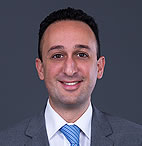
United Arab Emirates

Peter Anagnostou
Senior Legal Consultant
[email protected]
T +971 4 438 6392
View bio


Senior Legal Consultant
[email protected]
T +971 4 438 6392
View bio
By way of its constitution dated 2 December 1971, the UAE encompasses seven distinct emirates: Abu Dhabi; Dubai; Sharjah; Ras Al Khaimah; Ajman; Um Al Quwain; and Al Fujairah.
While the key tenets of the legal system of the UAE are based upon Shari’a law ("Islamic Religious Law"), much of the UAE's legislation derives from a mix of European (most notably French) and Islamic concepts of Civil Law, being based loosely on the Egyptian Legal Code.
Dual courts (both Shari’a and Civil) operate in the UAE each dealing with different areas of the law. In short, Shari’a courts are generally confined to social laws (such as family law) whereas commercial matters are generally now dealt with by the civil courts. In addition, a federal judicial system operates within the UAE, but certain Emirates (such as Dubai and Ras al Khaimah) have their own separate judicial frameworks, operating in parallel to the federal system.
The Federal Supreme Council is the highest constitutional authority in the UAE and has overarching responsibility for initiating, sanctioning and promulgating federal legislation in the UAE.
In many civil law jurisdictions in the region, the concepts of legal professional privilege and "without prejudice" communications do not exist per se, and the parties have the right to use any document which may support their position in civil litigation. This is the position in the UAE, which does not have any express provision in respect of legal professional privilege. Instead, lawyer-client legal professional privilege is interpreted under Islamic Religious Law.
Indeed, lawyers in the UAE are bound by duties of confidentiality, which in many cases, incorporate concepts similar to legal professional privilege.
Legal professional privilege protects all communications between a professional legal adviser and their client from being disclosed without the permission of the client. The privilege is solely for the benefit of the client and not the lawyer. The objective of this legal principle is to protect one's access to the justice system by ensuring individuals can disclose all relevant information to their legal advisers without the fear that this disclosure may result in negative repercussions or prejudice them in the future.
A lawyer ceases to be bound by the requirements of legal professional privilege if the lawyer can demonstrate that documentation or information:
Notwithstanding lawyer-client privilege, a lawyer may disclose certain documents / information to the extent such disclosure is required by a valid order of a court or other governmental body having jurisdiction, provided that the lawyer provides the client with reasonable prior written notice of such disclosure and makes a reasonable effort to obtain a protective order preventing or limiting the disclosure and/or requiring that the documents / information so disclosed be used only for the purposes required by law or regulation.
In the UAE, there is no process of discovery and / or inspection of documents as part of the litigation process. Instead, each party will simply file the documents that it seeks to rely on and there is no obligation on a party (subject to a court order) to file a document which is damaging to its case.
As is the position with most civil law jurisdictions in the Middle East, there are no express privilege rules in the UAE and parties are able to, in theory, admit into evidence any document which may support their position. Instead, the concept of legal professional privilege in the UAE is limited only to the professional relationship between a lawyer and their client, through the lawyer’s obligation to keep confidential all communications made between a lawyer and their client for the purposes of litigation. However, Article 42 of UAE Law No. 23 of 1991 states that "an attorney is to keep confidential the communications made in furtherance of their professional representation of a client, unless such disclosure is required to prevent the perpetration of a crime." The Code of Ethics further states "such information is to be kept confidential regardless of whether the representation is advisory/non-contentious or contentious in nature."
Indeed, lawyers must not disclose confidential information provided to them by their client without the client's express permission pursuant to the Federal Law on the Regulation of the Legal Profession.
It appears that the same privilege protections do not apply to in-house legal counsel advising officers, directors or employees of the company as they are not independent of the client. However, to protect information or communications passing between in-house counsel and the employer, it may be possible for a confidentiality agreement to be put in place.
The Dubai International Financial Centre ("DIFC") is an 'opt-in' jurisdiction subject to the DIFC Courts. "Privilege" is defined in the Rules of the DIFC Court 2018 (28.28(2)) as "the right of a party to refuse to disclose a document or to produce a document or to refuse to answer questions on the ground of some special interest recognised by law".
However, the DIFC Courts have not produced any practice directions in relation to the application of this rule nor have the courts been required specifically to rule on the issue of legal professional privilege in the DIFC. While it may be expected that the concept of legal professional privilege would be more widely applicable within the DIFC (largely due to the common law basis of its jurisdiction), parties cannot rely on this until the DIFC Courts issue guidance on the application of legal professional privilege in the DIFC.
Legal professional privilege has not been clearly defined within the context of merger control in the UAE.
There do not appear to be any recent cases or other legal developments in the UAE regarding legal professional privilege.
Content to follow shortly.